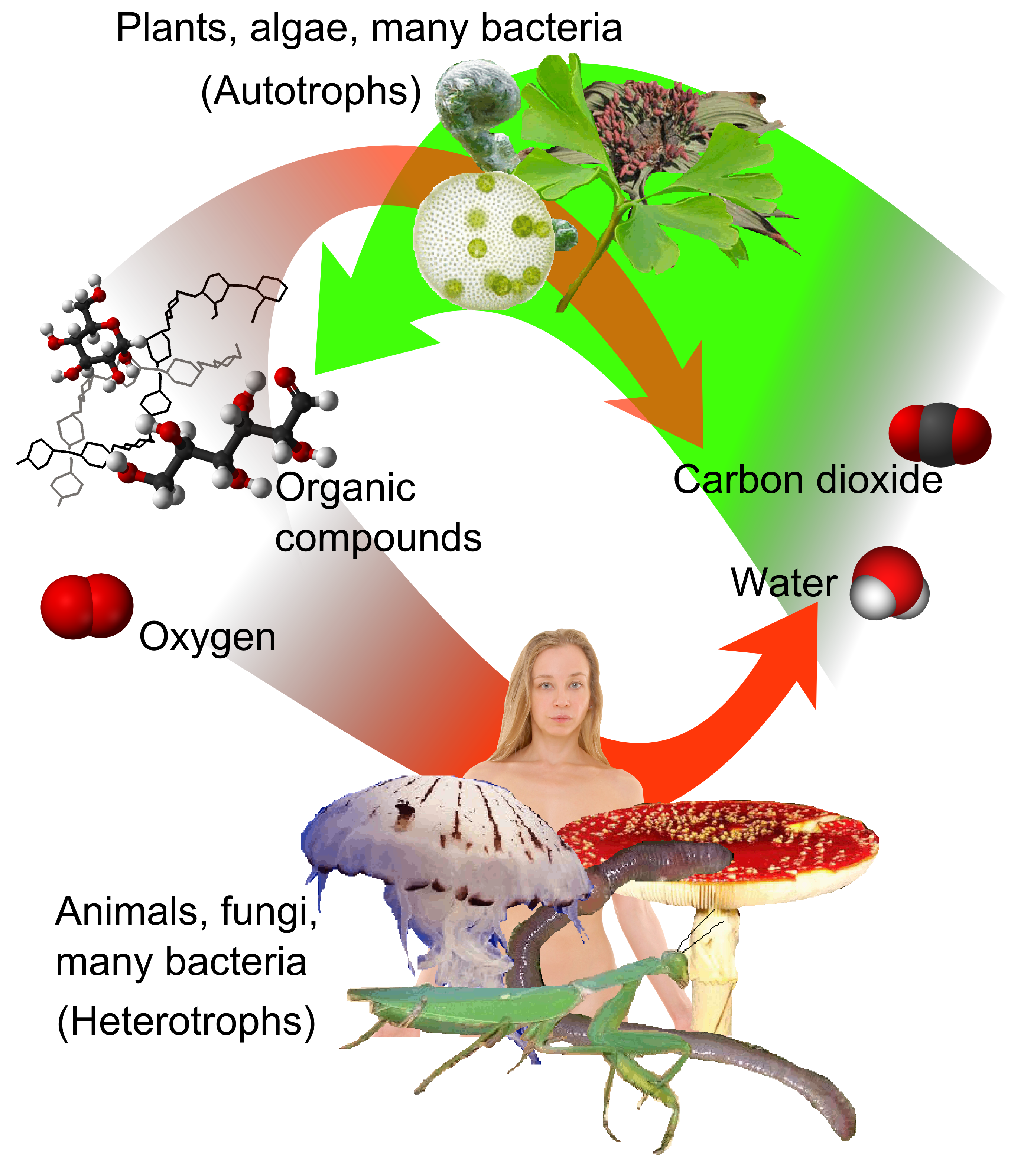Carbon Source (biology) on:
[Wikipedia]
[Google]
[Amazon]
 A carbon source is a
A carbon source is a
 A carbon source is a
A carbon source is a carbon
Carbon () is a chemical element with the symbol C and atomic number 6. It is nonmetallic and tetravalent—its atom making four electrons available to form covalent chemical bonds. It belongs to group 14 of the periodic table. Carbon mak ...
-containing molecule that is used by an organism to synthesise biomass. Such sources may be organic or inorganic
In chemistry, an inorganic compound is typically a chemical compound that lacks carbon–hydrogen bonds, that is, a compound that is not an organic compound. The study of inorganic compounds is a subfield of chemistry known as ''inorganic chemist ...
. Heterotroph
A heterotroph (; ) is an organism that cannot produce its own food, instead taking nutrition from other sources of organic carbon, mainly plant or animal matter. In the food chain, heterotrophs are primary, secondary and tertiary consumers, but ...
s must use organic molecules as a source of both carbon and energy. In contrast, autotroph
An autotroph or primary producer is an organism that produces complex organic compounds (such as carbohydrates, fats, and proteins) using carbon from simple substances such as carbon dioxide,Morris, J. et al. (2019). "Biology: How Life Wo ...
s may use inorganic materials as a source for both, such as inorganic chemical energy (chemolithotrophs) or light (photoautotrophs). The carbon cycle
The carbon cycle is the biogeochemical cycle by which carbon is exchanged among the biosphere, pedosphere, geosphere, hydrosphere, and atmosphere of the Earth. Carbon is the main component of biological compounds as well as a major componen ...
, which begins with an inorganic carbon source (such as carbon dioxide
Carbon dioxide ( chemical formula ) is a chemical compound made up of molecules that each have one carbon atom covalently double bonded to two oxygen atoms. It is found in the gas state at room temperature. In the air, carbon dioxide is trans ...
) and progresses through the biological carbon fixation
Biological carbon fixation or сarbon assimilation is the process by which inorganic carbon (particularly in the form of carbon dioxide) is converted to organic compounds by living organisms. The compounds are then used to store energy and as ...
process, includes the biological use of carbon as one of its components. /sup>
Types of organism by carbon source
Autotrophs
Heterotrophs
See also
*Carbon-based life Carbon-based may refer to:
* Biology
* based on Carbon
* Carbon-based life
* Carbon chauvinism
Carbon chauvinism is a neologism meant to disparage the assumption that the chemical processes of hypothetical extraterrestrial life must be constru ...
*
References
{{Reflist Carbon cycle Biochemistry